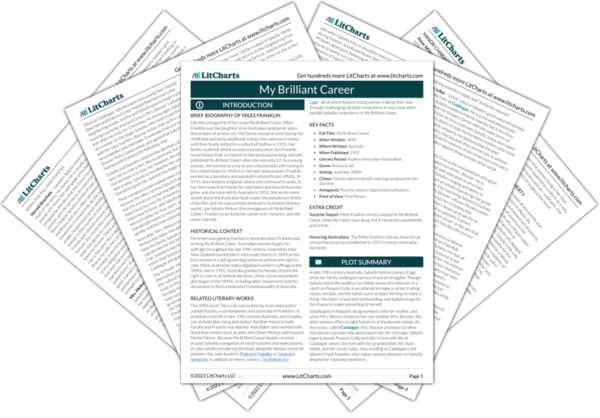Sybylla takes in the beauty of the natural world. She loves beauty, and even if she is no longer surrounded by the refined, elegant beauty of Caddagat, she can still find beauty in the landscape of her beloved Australia. She references flora and fauna specific to her country––gumtrees, kookaburras, and mopokes––and watches the sun set over them all. She bids goodbye to her readers directly, emphasizing how personal this story is. Then, despite her self-professed atheism, Sybylla offers her narrative to God, the only being who might be able to help a simple female peasant achieve a brilliant career. With her story concluded, Sybylla finishes, “Amen.”
